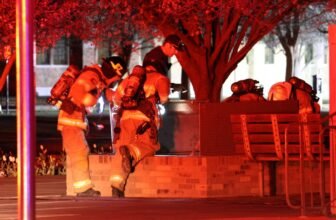
In December 2019, then-President Donald Trump enacted a controversial executive order to address antisemitism on U.S. college campuses. The order directs federal agencies to interpret antisemitic acts as being covered under the same standards as discrimination based on race, color, or national origin, as specified in Title VI of the Civil Rights Act. As colleges and universities across the United States respond to this major change, public and private institutions alike are facing a new challenge of uncertainty.
The Trump Administration’s Antisemitism Executive Order: Addressing the Impact
The executive order centers on antisemitism on college campuses, noting that Jewish students deserve the same protections as students from other racial, ethnic, and religious groups. By broadening the definition of discrimination, it leaves the door open on what constitutes free speech, academic freedom, and how it could lead to more government intervention on college campuses.
The order includes the following key elements:
- Expanded Definition of Antisemitism: The order requires agencies to also consider acts of antisemitism that deny the Jewish people the right to self-determination, including by accusing Israel of being a racist state.
- Impact on Campus Protests and Advocacy: The order could cut down on any student protests, particularly on Israeli policies, if it can be defined as antisemitic.
- Enforcement of Federal Civil Rights Laws: Colleges could be pressured to take action against groups or individuals who violate these guidelines, which could put their federal funding at risk.
Waning Worry For Academia
As colleges get set to implement this order, many U.S. colleges are worried about the effects. These institutions are now assessing how to reconcile their commitment to nurturing open conversation with adherence to the new rules. This is especially worrying to the academic community because of:
- Free Speech and Political Expression: Critics of the order claim it risks stifling legitimate criticism of Israel and may have a chilling effect on free expression on college campuses.
- The Risk of Overreach: There are concerns that the government may overreach, leading to unnecessary prohibitions on activities on campus like debates and rallies.
- Doubts Over How to Enforce the Order: Colleges are uncertain how they are supposed to enforce the order in a fair and consistent manner without violating the rights of students.
What’s Next for US Colleges?
As the order is debated, the effects are rippling across colleges and universities in the United States, which are preparing for possible legal challenges and administrative scrutiny. They are considering ways to ensure compliance while still protecting free speech and maintaining a diverse and inclusive environment. Here are some possible responses:
- Assessment of Campus Policies: Most colleges are also examining the implications of the new guidelines on their existing anti-discrimination policies.
- Discussion with Student Organizations: Schools are talking to student organizations to share concerns and explain what the order means for activism.
- Working with Attorneys: Schools are working with attorneys to figure out how to enforce the order without violating constitutional rights.
FAQs: Trump’s Executive Order on Antisemitism
What is Trump’s executive order on antisemitism and what does it mean for U.S. colleges?
The order directs federal agencies to apply the definition to education programs, enabling enforcement against criticism of Israel and other types of anti-Jewish sentiment, and providing protections to Jewish students under civil rights laws. Colleges must comply, or risk losing federal funds.
How will the order impact free speech across campuses?
The executive order has raised fears that it may limit free speech, especially on Israel. Critics worry that student protests and campus debates might be treated as antisemitic and subjected to possible legal and administrative action.
What is the order, and what are U.S. colleges doing about it?
Colleges are assessing their policies, working with legal experts, and consulting students to comply with the order while also protecting academic freedom and free expression.
FINAL THOUGHT: READYING FOR A NEW ERA IN CAMPUS POLICY
Trump’s executive order on antisemitism has certainly left U.S. colleges ambiguous about the future of their campus environments. The challenge for colleges as to how to enforce this new edict while respecting free speech and academic freedom continues, and rightly so. In the coming months, further developments and legal battles will help determine how U.S. colleges navigate these fraught issues.
What are your thoughts on the implications of this executive order? Scroll below to see what you think! Be sure to follow us on social media for the latest updates on this and other trending news.






